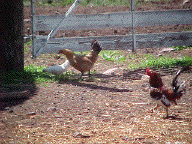 |
|
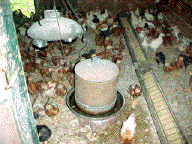 |
| 1.
A bantum chicken family scurries around the farm yard. From left
to right are a young chicken ( white bird), hen (light rust),
and rooster (multicolor with red crown). |
|
2.
Inside the chicken coop the young chickens find their feed (long
tray at the right) and water (circular container in center).
They eat a store-bought mash of ground corn and other ingredients. |
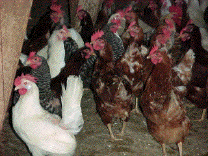 |
|
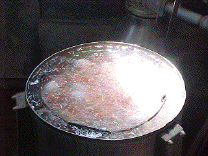 |
| 3.
On a daily basis one of the Weikel family members gathers the
eggs from the nesting areas in the coop. |
|
4.
Baskets of eggs are lowered into the egg washer. The washer heats
to a specific temperature and a light indicates when each batch
is finished. |
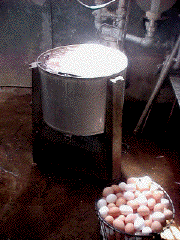 |
|
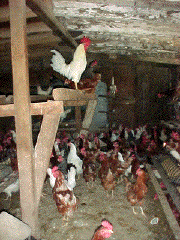 |
| 5.
This washing cleans the dirt off the eggs and helps to reduce
bacteria on the outside of the eggs. |
|
6.
Though chickens spend much of their time in their coops, they
are allowed out of the coop for exercise. |
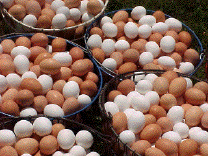 |
|
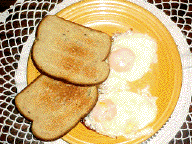 |
| 7.
At the Weikel farm 230 egg-producing chickens yield approximately
1 basket of eggs per day; each basket holds 12 - 15 dozen eggs
depending on the size of the eggs. |
|
8.
Eggs have traditionally been a part of the American breakfast
for many centuries. We still enjoy them as a source of protein
in our diets today. |